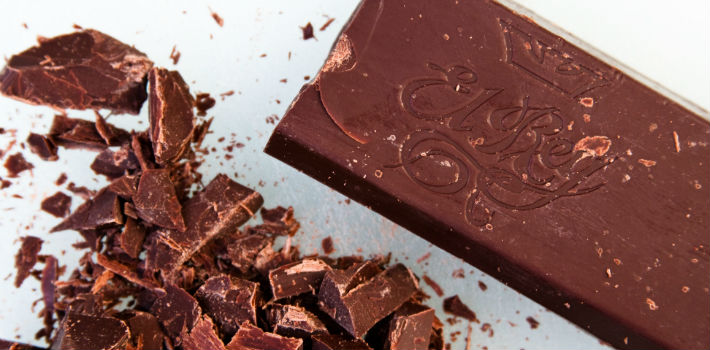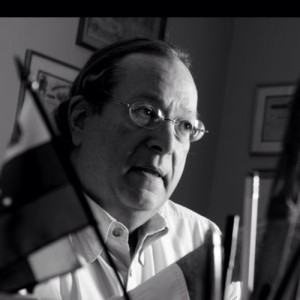
EspañolThe effects of financial downturn often include a slowdown in consumer spending, as cash-strapped citizens hoard their savings. Yet the exception to the rule is provided by Jorge Redmond, who tells the PanAm Post that “people in depressed economies consume products like chocolate to make themselves feel happier.”
Redmond, president of Chocolates El Rey, a Venezuelan firm that has manufactured chocolate and other products from cacao since 1929, should know. El Rey ranks among the world’s top chocolatiers, and continues to grow and innovate amid economic and social crisis in Venezuela.
An exporter to the United States, Japan, Canada, Argentina, Chile, and the European market, it boasts 3,000 direct and indirect colaboradores, or helpers, as Redmond likes to call his employees.
The head of the renowned firm, which continues to provide Venezuelans and people around the world with their much-needed chocolate fix, told the PanAm Post how El Rey manages to operate, and even thrive, under the current Venezuelan government.
What’s the outlook for the cacao industry in Venezuela?

The political realm undoubtedly affects all sectors of the economy, and Chocolates El Rey is no exception. In our case, we are not importers, except for insubstantial products like natural vanilla that we bring from France; and Brazilian aluminum to wrap the chocolates.
We do have a lot of problems domestically with the packaging and labeling, because the required inks have to be imported, and if one ink is missing there is no packaging, and without it there’s no chocolate.
These are the sort of issues that have put us in a tight spot in recent months. They’re basically a foreign-exchange problem, and since the government has allowed money to be either stolen or misspent, the resulting effect is that the country doesn’t have the resources to keep producing and satisfying the needs of the Venezuelan people.
However, apart from that the company is doing well in many ways. It’s faring much better than others that rely almost exclusively on imports, and now even the government is trying to enter the cacao business through direct investment: it has set up two factories, one to process cacao and another one to make chocolate, but they stopped operating two or three years ago. It seems like a joke, but at least our company is doing well.
Venezuela has achieved worldwide recognition for the quality of its chocolate. Is it still viewed that way?
Venezuela is not a pioneer in cacao exports, so to speak, but it gave birth to the Creole bean, a more aromatic and low-yield type of cacao. Forestero beans grow in the Amazon basin area, well suited to production and very resistant to diseases, yet less aromatic and tasty.
Those two varieties of cacao currently form the basis of chocolate around the world. The cacao born in the Amazon area was taken to Africa and Malaysia, while settlers during Venezuela’s colonial period succeeded in making a hybrid of the Creole with the Forastero. So nowadays we have a third strain, the Trinitario, essentially planted in Barlovento and in eastern Venezuelan. It has the benefits of both beans: high yield, aroma, flavor, and resistance to disease.
Measured by quantity, we are not a world leader. We are responsible for less than 0.5 percent of total chocolate production. But we do have the best quality of cacao, the best aroma, and flavor. We continue to lead in this respect.
As chocolate manufacturers in Venezuela, we employ almost exclusively Venezuelan cacao, and we strive to be recognized internationally as a high-quality chocolate producer.
How many companies are there in Venezuela dedicated to the same business as Chocolates El Rey?
A couple of years ago there used to be 12 of us. Now, I believe we’re four. Many have closed shop or collapsed. A couple of new ones have emerged, but they’re still getting off the ground. Some multinational corporations like Nestlé are still in Venezuela and I imagine they have plans to expand.
How has the firm adapted to the country’s economic and political situation?
The firm has been evolving over time. It’s a natural process. Before this government there were many others, not always successful, so we’re always in constant evolution. We’re looking for new ways to do our job more intelligently and in a more technology-oriented way. There’s always a way to overcome challenges.
Have Venezuelans changed their chocolate consumption habits?
Not in our case. What we do see is that while other sectors have experienced considerable drops, especially due to rising prices, consumption of our chocolate has remained strong, even as chocolate prices go up.
It’s also true that in depressed economies people tend to consume products like ours, to make themselves happier. Cacao’s chemical effects do bring some sort of happiness to the consumer. In our case, consumption has improved somewhat.
Are you planning on launching any new products?
Yes, always. We’re developing a whole new line, that we’ll present to the country and the world by the end of the year. We will keep growing with other types of products, different mixtures and raw materials. Other ways of enjoying chocolate are to come. We’ve always have tried to spread knowledge about Venezuelan cacao.
So you’re saying it’s possible to succeed in Venezuela despite everything? Would that be your message to those who have lost hope?
The cacao world is very different from the political world. We do know very clearly where we are heading and why, while the political world is full of bumpy roads. There seem to be a lot of failed experiments, and there are still people who insist on preserving models that have proved not to work. I don’t know how that will be resolved, but I’m sure that sooner or later the country will find a way out, because in the political realm this situation is unsustainable.
The cacao world is very different from the political world. We do know very clearly where we are heading and why.
People lack food, medicine, adequate public services, and given that the government is supposed to serve the people but pays no attention, we’re going to see an important change. How long will it last? It’s hard to know, but I think that the process of change has already started. Life has its ups and downs, we have to look beyond the immediate present. I believe in the future for those who want to move forward.
Fundamentally, it’s about educating the people, because many Venezuelans fall prey to the deceptions of governments who want to stay in power. It’s high time for the country to sow the seeds of growth, and I believe that people who want greater freedom will win by a landslide.
That’s why I’m somewhat optimistic; one has to be part of the solution.
Translated by Daniel Duarte. Edited by Laurie Blair.
Jorge Redmond is a PanAm Post blogger, and you can read his archive here.
 Versión Español
Versión Español












